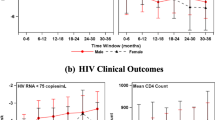Abstract
Immediately after the approval of direct-acting antiviral medications for the treatment of hepatitis C virus (HCV) in 2013, state Medicaid programs limited access to these expensive treatments based on liver disease stage, absence of active alcohol or substance use, and prescriber limitations. New York State fee-for-service (FFS) Medicaid eliminated these requirements in May 2016, but the effect on providers and patients obtaining prior authorization (PA) from Medicaid managed care organizations (MCOs) was unknown. We used a mixed methods approach to assess whether the removal of HCV treatment restrictions was associated with changes in Medicaid MCOs’ PA approval processes and length of time to treatment initiation at two large urban New York City provider organizations participating in Project INSPIRE, an HCV care coordination demonstration project. At baseline, the top criteria for clinic care coordinators ranking MCOs as being “most difficult” were liver staging criteria, delayed treatment, and requiring a urine toxicology test. At follow-up, liver staging criteria were replaced by medication formulary limitations. Univariate analysis of the Project INSPIRE participant data suggests a decrease in the percentage of participants with insurance/PA-related treatment delays pre- versus post-policy change (23% versus 15%, p value = 0.02). Interrupted time series analysis found a 2 percentage point decrease (p value = 0.02) in the proportion of PAs each month with insurance-related treatment delays that was attributable to policy change. These results from two urban clinics indicate New York State FFS Medicaid’s policy change for HCV treatment may have been associated with some changes in Medicaid MCO PA decisions, but MCO PA denials and treatment delays were still observed “on the ground” by clinic staff.
Similar content being viewed by others
Notes
Figures available upon request
References
Hofmeister MG, Rosenthal EM, Barker LK, Rosenberg ES, Barranco MA, Hall EW, et al. Estimating prevalence of hepatitis C virus infection in the United States, 2013-2016. Hepatology. 2019;69(3):1020–31. https://doi.org/10.1002/hep.30297.
Barua S, Greenwald R, Grebely J, Dore GJ, Swan T, Taylor LE. Restrictions for Medicaid reimbursement of sofosbuvir for the treatment of hepatitis C virus infection in the United States. Ann Intern Med. 2015;163(3):215–23. https://doi.org/10.7326/M15-0406.
Canary LA, Klevens RM, Holmberg SD. Limited access to new hepatitis C virus treatment under state Medicaid programs. Ann Intern Med. 2015;163(3):226–8. https://doi.org/10.7326/M15-0320.
Kapadia SN, Johnston CD, Marks KM, Schackman BR, Martin EG. Strategies for improving hepatitis C treatment access in the United States: state officials address high drug prices, stigma, and building treatment capacity. J Public Health Manag Pract. 2019;25(3):245–52. https://doi.org/10.1097/PHH.0000000000000829.
Lo Re V 3rd, Gowda C, Urick PN, et al. Disparities in absolute denial of modern hepatitis C therapy by type of insurance. Clin Gastroenterol Hepatol. 2016;14(7):1035–43. https://doi.org/10.1093/ofid/ofy076.
AASLD-IDSA. Recommendations for testing, managing, and treating hepatitis C. September 16, 2016. https://www.snfge.org/download/file/fid/2412. Accessed 20 Sept 2018.
Behrends CN, Eggman AA, Gutkind S, Bresnahan MP, Fluegge K, Laraque F, et al. A cost reimbursement model for hepatitis C treatment care coordination. J Public Health Manag Pract. 2019;25(3):253–61. https://doi.org/10.1097/phh.0000000000000806.
Assuring medicaid beneficiaries access to hepatitis C (HCV) drugs. [press release]. Baltimore, MD: Centers for Medicare & Medicaid Services, 2015.
Ooka K, Connolly JJ, Lim JK. Medicaid reimbursement for oral direct antiviral agents for the treatment of chronic hepatitis C. Am J Gastroenterol. 2017;112(6):828–32. https://doi.org/10.1038/ajg.2017.87.
Clements K, Clark RE, Lavitas P, Kunte P, Graham CS, O'Connell E, et al. Access to new medications for hepatitis C for Medicaid members: a retrospective cohort study. J Managed Care Specialty Phar. 2016;22(6):714–22. https://doi.org/10.18553/jmcp.2016.22.6.714.
New York State Medicaid Drug Utilization Review (DUR) Board Meeting Summary for April 27, 2016. In: Office of Health Insurance Programs, New York State Department of Health,https://www.health.ny.gov/health_care/medicaid/program/dur/meetings/2016/04/summary_durb.pdf. Albany, New York 2016.
Deming R, Ford MM, Moore MS, Lim S, Perumalswami P, Weiss J, et al. Evaluation of a hepatitis C clinical care coordination programme's effect on treatment initiation and cure: a surveillance-based propensity score matching approach. J Viral Hepat. 2018;25(11):1236–43. https://doi.org/10.1111/jvh.12929.
Teixeira PA, Bresnahan MP, Laraque F, Litwin AH, Shukla SJ, Schwartz JM, et al. Telementoring of primary care providers delivering hepatitis C treatment in New York City: results from project INSPIRE. Learning Health Systems. 2018;2(3):e10056. https://doi.org/10.1002/lrh2.10056.
Östlund U, Kidd L, Wengström Y, Rowa-Dewar N. Combining qualitative and quantitative research within mixed method research designs: a methodological review. Int J Nurs Stud. 2011;48(3):369–83. https://doi.org/10.1016/j.ijnurstu.2010.10.005.
Kontopantelis E, Doran T, Springate DA, Buchan I, Reeves D. Regression based quasi-experimental approach when randomisation is not an option: interrupted time series analysis. BMJ : Brit Med J. 2015;350:h2750. https://doi.org/10.1136/bmj.h2750.
Penfold RB, Zhang F. Use of interrupted time series analysis in evaluating health care quality improvements. Acad Pediatr. 2013;13(6 Suppl):S38–44. https://doi.org/10.1016/j.acap.2013.08.002.
AASLD-IDSA. Recommendations for testing, managing, and treating hepatitis C. 2019. https://www.hcvguidelines.org/node/2267/summary. Accessed 31 Dec 2019.
Hepatitis C. The State of Medicaid Access. Washington, DC: National Viral Hepatitis Roundtable; 2018. https://hepcstage.wpengine.com/wp-content/uploads/2017/10/State-of-HepC_2017_FINAL.pdf. Accessed 23 Oct 2017.
Toohey MM. Prior authorization of hepatitis C medications in NYS Medicaid Fee for Service (FFS) and Medicaid Managed Care. https://www.hhs.gov/sites/default/files/NYPresentation-Prior-Auth-Feb-2018.pdf. Published February 8, 2018.
State policies regarding Medicaid MCO preferred drug lists 2, The Menges Group, 2014, available at https://www.themengesgroup.com/upload_file/acap_fact_sheet_on_pdls.pdf. Accessed 20 Sept 2018.
Dunn EE, Vranek K, Hynicka LM, Gripshover J, Potosky D, Mattingly TJ II. Evaluating a collaborative approach to improve prior authorization efficiency in the treatment of hepatitis C virus. Q Manage Health Care. 2017;26(3):136–9. https://doi.org/10.1097/QMH.0000000000000137.
Hepatitis C: The State of Medicaid Access. November 14, 2016. http://www.chlpi.org/wp-content/uploads/2013/12/HCV-Report-Card-National-Summary_FINAL.pdf. Washington, DC: National Viral Hepatitis Roundtable. Accessed 20 Sept 2018.
Center for Health Law and Policy Innovation. Report ranks all 50 states on hepatitis C treatment access. CHLPI Blog.November 5, 2017. https://www.chlpi.org/report-ranks-50-states-hepatitis-c-treatment-access/. Accessed 20 Sept 2018.
National Viral Hepatitis Roundtable and Center for Health Law and Policy Innovation at Harvard Law School. Hepatitis C: State of Medicaid Access Report Card. https://stateofhepc.org/wp-content/themes/infinite-child/reports/HCV_Report_NewYork.pdf. New York. 2017. Accessed 20 Sept 2018.
Govornor Cuomo Announces First-In-Nation Strategy to Eliminate Hepatitis C [press release]. Albany: New York State. July 27, 2018.https://www.governor.ny.gov/news/governor-cuomo-announces-first-nation-strategy-eliminate-hepatitis-c. Accessed 20 Sept 2018.
Acknowledgments
We would like to acknowledge the important contributions of the Project INSPIRE administrative staff, HCV Champions, clinical providers, care coordinators, and peer navigators who provided patient data for this study.
Funding
Supported by Grant Number 1C1CMS331330–01-00, from the Department of Health and Human Services, Centers for Medicare & Medicaid Services and the National Institute on Drug Abuse (P30DA040500, T32DA031099).
Author information
Authors and Affiliations
Corresponding author
Additional information
Publisher’s Note
Springer Nature remains neutral with regard to jurisdictional claims in published maps and institutional affiliations.
Electronic supplementary material
ESM 1
(PDF 101 kb)
Rights and permissions
About this article
Cite this article
Behrends, C.N., Gutkind, S., Deming, R. et al. Impact of Removing Medicaid Fee-for-Service Hepatitis C Virus (HCV) Treatment Restrictions on HCV Provider Experience with Medicaid Managed Care Organizations in New York City. J Urban Health 98, 563–569 (2021). https://doi.org/10.1007/s11524-020-00422-0
Published:
Issue Date:
DOI: https://doi.org/10.1007/s11524-020-00422-0




